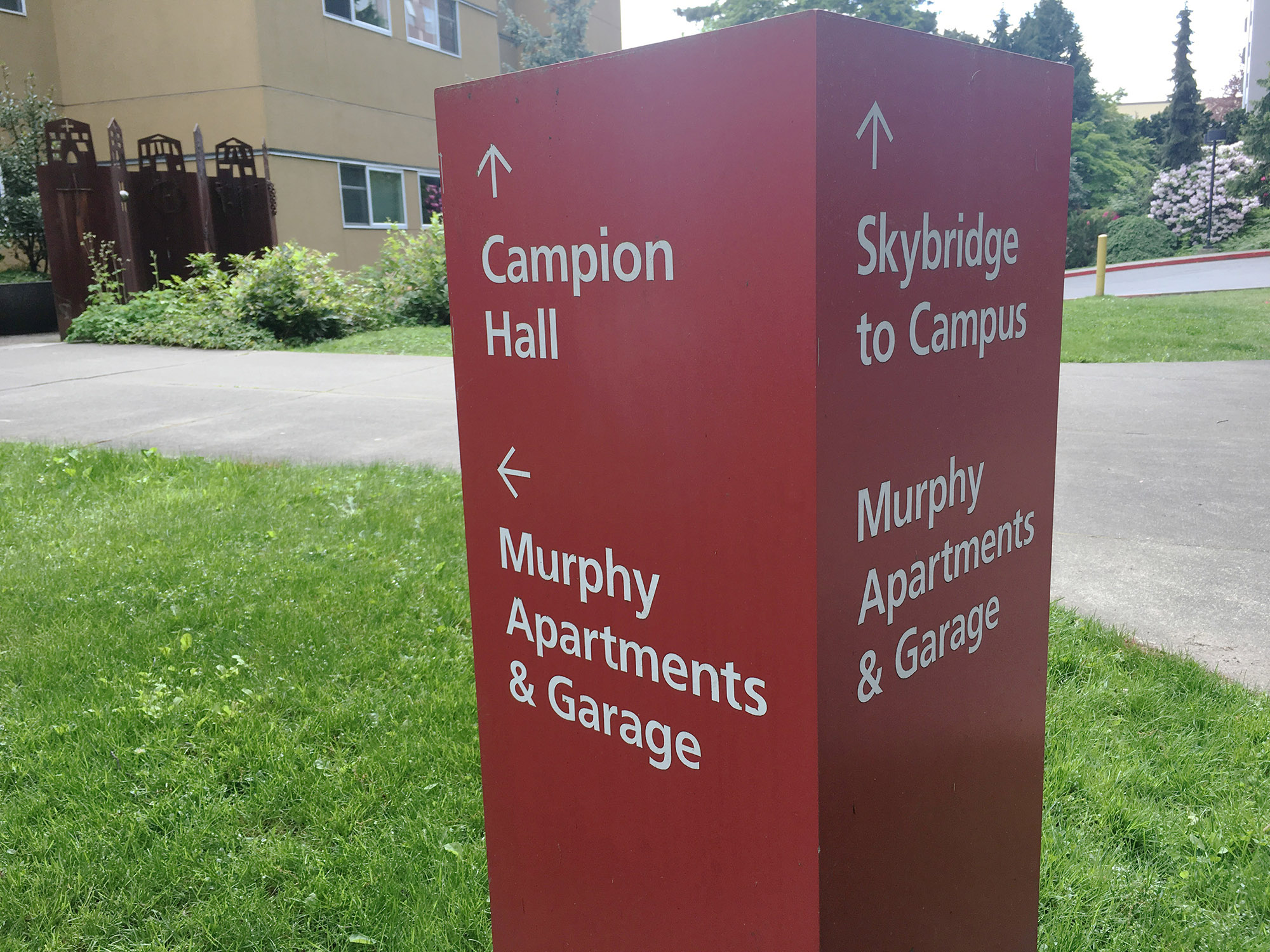In response to the announcement in March that juniors and seniors will no longer have priority to live on campus, students organized a petition and Student Government of Seattle University partnered with Housing and Residence Life to host a series of housing events. The petition includes recommendations to administration to alleviate effects of the policy, while the information sessions offer off-campus housing tips.

The recent change in on-campus housing prioritization has left many students scrambling for living arrangements next school year.
A student petition named “Recommendations to Improve the Situations of Students Affected by the Housing Strategic Plan”—initiated through a petition platform within the Student Government of Seattle University (SGSU)—proposes five changes to improve the transitional period for upperclassman as they search for off-campus housing. More than 650 students have signed the petition in the hope that the Seattle University Administration will consider implementing the changes.
Juniors Melissa Schade and Maiya Loucks wrote the petition after hearing student concerns about the sudden housing policy changes. They asked rising juniors and seniors for feedback and incorporated their answers into the recommendations in the petition.
According to the online petition, the proposals include: increasing the radius of the Night Hawk service (which currently reaches six blocks off campus), working with surrounding housing complexes to secure and hold housing for Seattle University students, improving ORCA card access for students who live off-campus, improving communication and allowing students with priority housing to extend their priority to their roommates.
Instead of battling the new housing policy, Loucks and Schade thought it would be more reasonable to offer suggestions to improve it.
“We can’t just expect them to give us priority as upperclassmen because that is just impossible because they’ve just accepted too many people, so we just wanted to do things that would make our lives easier as we transition off-campus,” Loucks said.
A key frustration outlined in the petition is the issue of communication between administration and Seattle U students, which the authors feel played a large role in the mostly negative response to the policy.
“I think [administration has] a moral obligation to the students to give them information on things that are going to directly impact their future plans,” said Schade, a junior English literature and philosophy double major.
When the petition reached over 500 signatures, Schade and Loucks began the next steps of the process and are now working with SGSU for a response from administration. They hope the petition will be successful, and that administration will provide a clear response.
“Hopefully there would be a student-wide email that would address these concerns because clearly it’s not just something the people who wrote the petition feel, it’s something that 500 students are aware and worried about,” Schade said.
Stacey Ruiz, a sophomore psychology major, is worried about the sudden change to the housing policy and the affects it will have on students.
“It has been a struggle and it has been stressful because there’s only so much on the market on Capitol Hill and what is available is something that’s ridiculously expensive and no one can really afford,” Ruiz said.
Jorge Laborico, the sophomore representative for SGSU, helped organize a series of housing information sessions last week that aimed to inform students about searching for off-campus housing.
As the sophomore representative, Laborico knew that the change in policy would directly affect his constituents and that he needed to help alleviate the pressure students were feeling.
“As soon as I heard about [the policy] I took the initiative as an SGSU member to do something for my community,” Laborico said.
According to Laborico, SGSU and Housing and Residence Life (HRL) co-sponsored the sessions—SGSU covering advocacy, communication and outreach, and HRL providing the information and resources. The workshops took place in The Douglas Apartments throughout the week and were focused on leaser’s rights, landlords, budgeting, how to find an apartment and affordable housing.
“Our goal was to make sure that [students] have the resources and the knowledge, especially because it is very competitive in this area to find cheap housing, we don’t want the students to go into anything they find without knowing what rights they have as tenants and what is reasonable and what is not,” Laborico said.
Laborico said that so far he has received only positive feedback about the sessions. The information from the workshops is posted on the HRL web page, and on Thursday, April 28 there will be a housing fair in the Douglas lobby where students will have the opportunity to meet landlords and learn about different apartment complexes in the area.
Tess may be reached at towen@su-spectator.com







